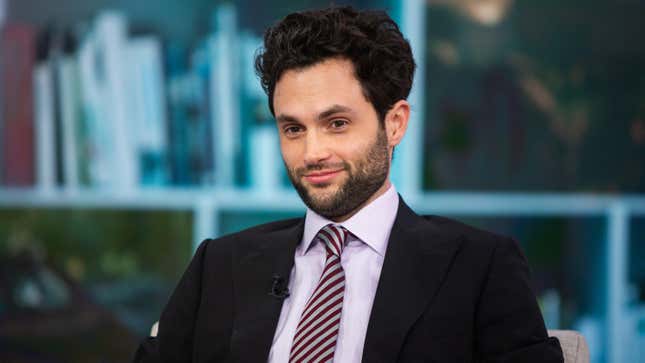We Talked to Intimacy Coordinators About Penn Badgley’s Viral Anti-Sex Scene Comments
“I had an actor recently who, in conversation with their wife, said their boundaries were, ‘I don’t want to touch anybody’s breasts or nipples,’" one told me.
Entertainment

Penn Badgley shared last week that he’d requested that the number of intimacy scenes in You Season 4 “go from 100 to zero,” explaining that “fidelity in every relationship, and especially my marriage, is really important to me.” While sex scenes for his character, serial killer Joe Goldberg, remain in the season, there are certainly fewer; the scenes lack close-up shots, and clothes mostly stay on.
In an interview with Variety published on Wednesday, Badgley offered further insights on why he chose to set this boundary. “It’s not a place where I’ve blurred lines,” he said of filming love scenes. “There’s almost nothing I could say with more consecration. That aspect of Hollywood has always been very disturbing to me—and that aspect of the job, that mercurial boundary—has always been something that I actually don’t want to play with at all.”
Badgley’s comments sparked a fiery debate on social media, as some have argued that sex scenes are just a feature of actors’ jobs and that sexualizing or conflating these scenes with infidelity is unprofessional. “I find penn badgley’s antisex comments really creepy and unprofessional. it’s his choice not to do sex scenes but tying it to infidelity and not crossing boundaries with his wife is offputting,” says one tweet with nearly 15,000 likes as of Wednesday. Another suggested, “It sounds more like he doesn’t trust himself not to cheat, so he’s reframing it in a better light.”
To me, it seems Badgley is simply setting a personal boundary, which doesn’t exactly strike me as unprofessional behavior. Badgley’s insights on sex scenes and his aversion to them come at a time when more and more actors—especially young women—have spoken up about the value of intimacy coordinators in facilitating sex scenes in accordance with their boundaries. Intimacy coordinators are increasingly in demand on film sets, Jessica Steinrock, an intimacy coordinator and CEO of Intimacy Directors & Coordinators, told me—especially since roughly 2018 and 2019 amid the mainstream nascence of #MeToo.
I reached out to Steinrock and another intimacy coordinator, Ita O’Brien, to chat about Badgley’s comments, the surprising backlash they’ve drawn, and the role of intimacy coordinators in building scenes around these kinds of boundaries.
-

-

-

-

-

-

-

-

-

-

-

-

-

-

-

-

-

-

-

-

-

-

-

-

-

-

-

-

-

-

-

-

-

-

-

-

-

-

-

-









































